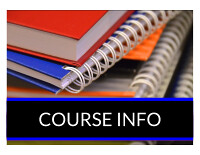[SC] Science 8 Semester B (2 of 2): Extended Campus (SM)
Click to view the transcript for the video.
Welcome to Science 8B! This course focuses on physical science concepts from physics and chemistry. Science 8B begins with an introduction to the history of physics. Then, the course explores the fundamentals of physics, including Newton’s laws of motion and graphing. The second half of the course begins with an introduction to the history of chemistry. The course then continues with the basics of chemistry, including the periodic table, the properties of matter, and how matter changes. Science 8B ends with a brief look at modern physics and chemistry.
This course is made up of six units, and each unit has five lessons. Within each lesson, you will be presented with many different ways to help you learn the information. Some activities are graded, and others are not graded. Please make sure to check with your teacher for further information about course guidelines and grading policies.
A typical lesson may include the following activities. Note that the Checkpoint occurs in the first four lessons of a unit, while the Unit Exam occurs in the last lesson of a unit.
Discussion Board — Graded activity that gives you a chance to interact and communicate with your classmates and teacher. It allows you to explore the unit’s topics in more depth and may require research.
Discover — Learning activity that can include readings, interactive and enrichment activities, images, and videos.
Project — Graded activity to practice researching, investigating, and experimenting.
Vocab Review — Review that covers vocabulary from the unit to prepare you for the Checkpoint and Unit Exam.
What Did I Learn? — Reviews the information you learned in the lesson through a comic summary and review questions.
Checkpoint — Graded activity with 10 questions to assess what you learned in the lesson.
Unit Exam — Graded activity with 30 questions to assess what you learned in the unit.
Note: Some activities in this course recommend that you write your answers in your notes. Your notes can be written in a personal notebook or a document you save on the computer. Taking notes will help keep you on track during the course and will help you process what you are learning.


